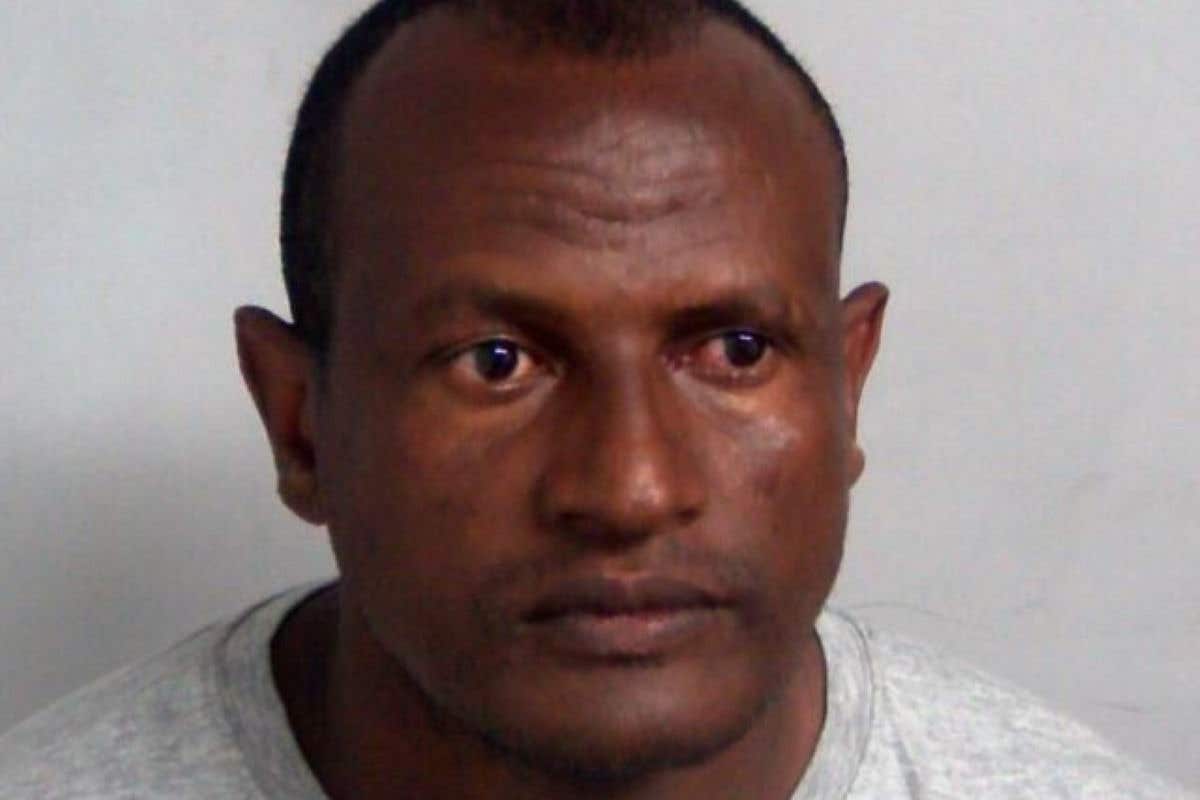A migrant sex offender who was mistakenly released from prison was paid £500 to leave the UK after threatening to disrupt his deportation flight.
Hadush Kebatu was wrongly freed from HMP Chelmsford last Friday morning, rather than being transferred to an immigration detention centre as intended. This significant error triggered a two-day manhunt, culminating in his re-arrest in London on Sunday morning.
The Home Office confirmed that Mr Kebatu arrived in Ethiopia on Wednesday morning, having been deported from the UK with no right of return.
Downing Street clarified on Wednesday that the £500 payment was an “operational decision”. Kebatu had been rejected from the voluntary removal scheme for offenders, but was still given some funding after he threatened to disrupt his flight, a spokesman said.

The government stated that the alternative would have been a “slower and more expensive process”, potentially involving further detention, a new flight costing thousands, and subsequent legal claims.
The revelation that Kebatu received money to depart the country has been met with strong criticism, with the Conservatives branding the decision an “absolute disgrace”.
Many are also confused as to why the man was given money by the government. Here’s everything you need to know about the rules:
How do criminals leave the UK?
A facilitated return scheme was set up in 2006 to enable the government to return people to their country of origin if they commit a crime in the UK.
The purpose of the scheme is to encourage foreign national offenders to leave the UK voluntarily “at the earliest possible opportunity,” rather than using state funds and resources on their imprisonment or detention.
As part of this scheme, offenders receive financial support to encourage them to cooperate with their removal. This can be worth up to £2,000.
There is also an option for migrants who have not been convicted of a crime to leave the UK voluntarily if they meet certain criteria. This could be residing in the UK illegally, overstaying a visa, or having been rejected for an asylum claim.
If removal if not volunteered, the Home Office can carry out an enforced removal. This will typically void any option for the migrant to receive funds.
However, in the case of Mr Kebatu, some money was still given despite his removal being enforced.
How much money can foreign nationals receive to leave the UK?
According to Home Office guidance, there are several levels of ‘resettlement grant’ available, with higher amounts typically paid to someone who applies whilst in custody. The rates are:
£750
- For foreign nationals who apply after completing their custodial sentence
- For foreign nationals who have received a conviction overseas
- For foreign national offenders with UK non-custodial convictions (not linked to a prison sentence.
£1,500
- When the application is made whilst the foreign national offender is serving their custodial sentence
- For qualifying family members
An extra £500 may also be payable to a “small number” of vulnerable foreign national offenders, Home Office guidance explains. For example, this could be if they are pregnant, considered ‘mentally disordered’, have physical disabilities, are homeless, or have a serious illness.
Other migrants who do not have permission to remain in the UK can seek voluntary return from the UK can receive up to £3,000 in financial support to facilitate their return. This is a different scheme, and offenders cannot apply.
Those eligible can also receive support from the voluntary returns service to understand their options, help get travel documents (e.g. a passport), and pay for travel costs.
However, receiving financial support depends on certain criteria being met. This could be if the applicant:
- is returning to a ‘developing country’, as defined by the Organisation for Economic Co-operation and Development (OECD)
- has had their claim for asylum in the UK refused
- has received a letter from the Home Office confirming that they’re a victim of modern slavery
- are part of a family group that will travel together, including someone under 18 years old
- are under 18 and travelling alone
- are under 21 and a care leaver
- are sleeping rough
- need more help with their return – for example, because they have a medical condition
